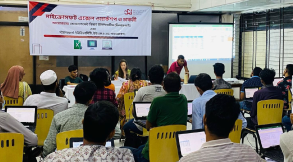A unilateral carbon tax trades off the distortionary costs of taxation and the future gains from slowing down global warming. Because the cost is local and immediate, whereas the benefit is global and delayed, this tradeoff tends to be unfavorable to unilateral carbon taxes. We show that this logic breaks down in a world with trade and migration where economic geography is shaped by agglomeration economies and congestion forces. Using a multisector dynamic spatial integrated assessment model (S-IAM), this paper predicts that a carbon tax introduced by the European Union (EU) and rebated locally can, if not too large, increase the size of Europe’s economy by concentrating economic activity in its high-productivity non-agricultural core and by incentivizing immigration to the EU. The resulting change in the spatial distribution of economic activity improves global efficiency and welfare. A unilateral carbon tax with local rebating introduced by the US generates similar global welfare gains. Other forms of rebating can dilute or revert this positive effect.
STEG Working Paper Series
• Research Theme 4: Trade and Spatial Frictions,
Cross-Cutting Issue 2: Climate Change and the Environment
On the Geographic Implications of Carbon Taxes
Bruno Conte, Klaus Desmet, and Esteban Rossi-Hansberg

Related content




























































































